Study of Triac and A.C.Phase Control
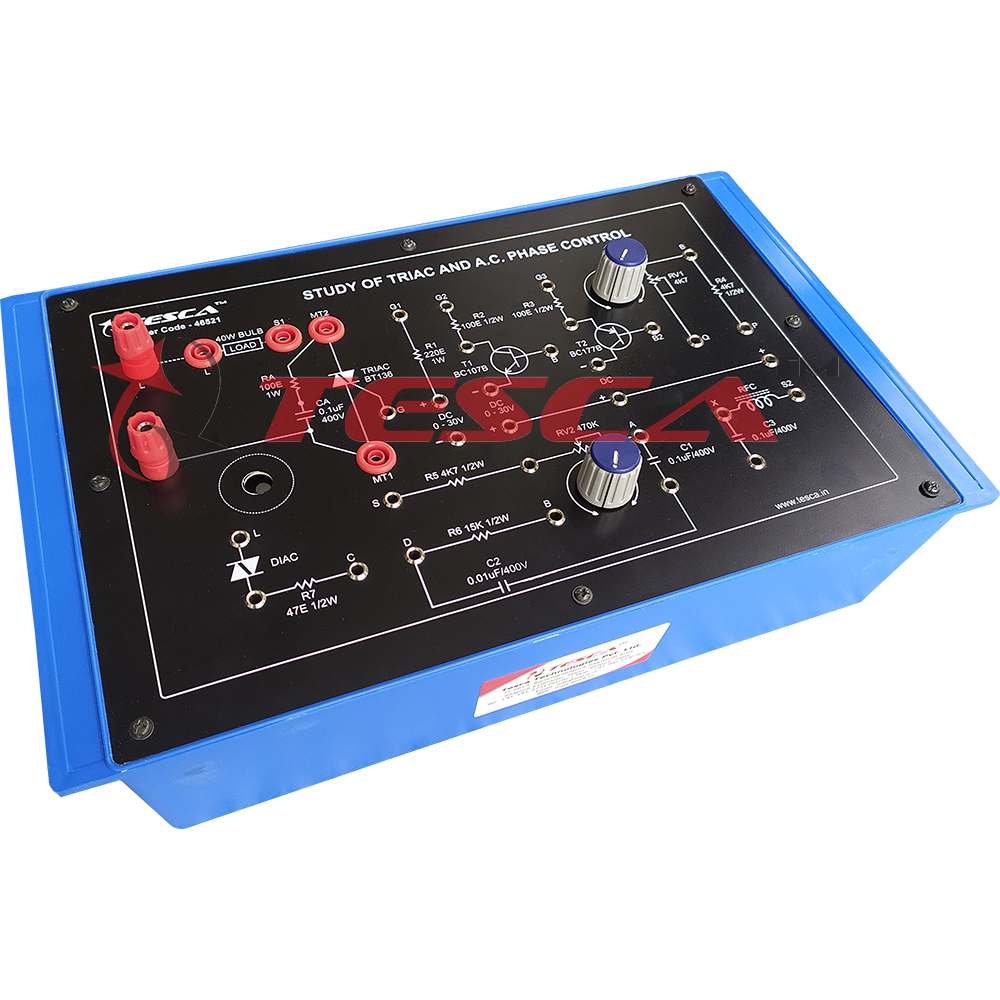
Order Code: 46521
Category: Electrical Machine Lab
Power Electronic Training Board has been designed specifically to study the characteristics of a TRIAC and its application as A.C. Power Control using phase control technique. The unit is provided with built-in load facility. Experiments for the...
SPECIFICATION
Power Electronic Training Board has been designed specifically to study the characteristics of a TRIAC and its application as A.C. Power Control using phase control technique. The unit is provided with built-in load facility. Experiments for the study of radio frequency interference in phase control and methods of their suppression, can be conducted on this training board.
Practical experience on this board carries great educative value for Science and Engineering Students.
Object:
To perform the following experiments :
Practical experience on this board carries great educative value for Science and Engineering Students.
Object:
To perform the following experiments :
- Study of TRIAC characteristics and its operation in all the four modes i.e. I , I-, III and III-.
- Gate control of TRIAC with NPN transistor.
- Gate control of TRIAC with PNP transistor.
- Phase control with TRIAC and DIAC as pulse generator for gate trigger.
- Light dimmer with TRIAC-hysteresis effect and its minimization by gate slaving technique.
- Study the Radio Frequency Interference (RFI) in phase control and its suppression by RFI filter.
Features:
The board consists of following built-in parts:
- TRIAC.
- DIAC.
- Two potentiometers for biasing and phase control.
- RF choke and capacitor for RFI filter.
- Lamp holder with 40 Watt lamp for load in power control indicator.
- Adequate no. of other Electronic Components.
- Mains ON/OFF switch, Fuse and Jewel light.
- The unit is operative on 230V ±10% at 50Hz A.C. Mains.
- Adequate no. of patch cords stackable 4 mm spring loaded plug length ½ metre.
- Good Quality, reliable terminal/sockets are provided at appropriate places on panel for connections/observation of waveforms.
- Strongly supported by detailed Operating Instructions, giving details of Object, Theory, Design procedures, Report Suggestions and Book References.

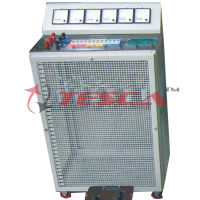
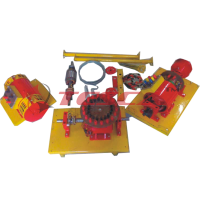
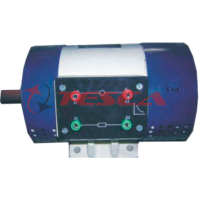
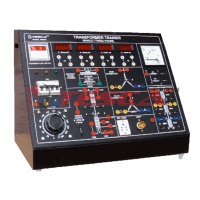
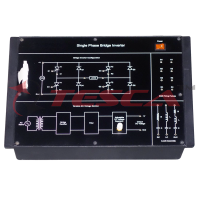
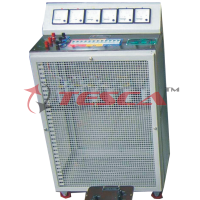
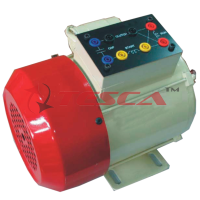

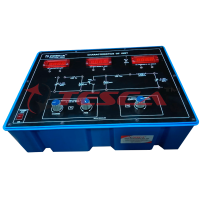

 91-9829132777
91-9829132777